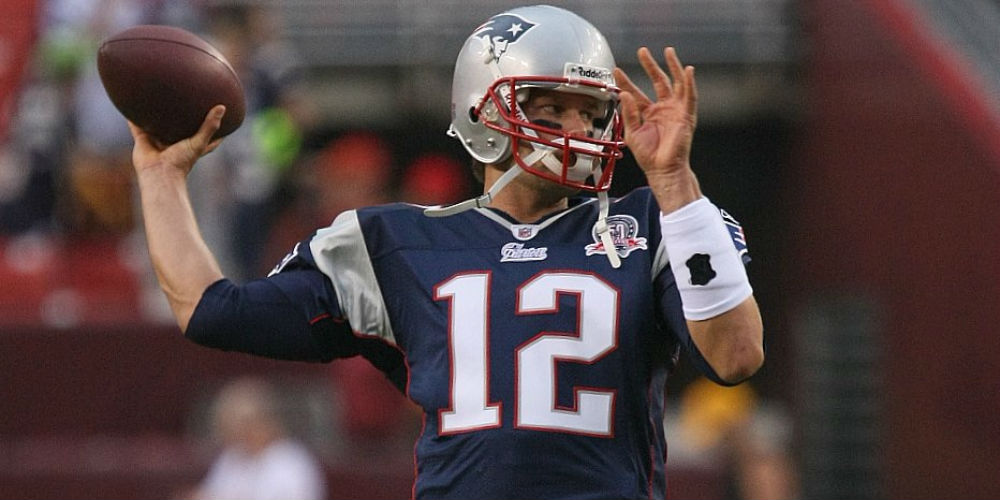Tom Brady: CFPB poster boy

Given the amount of media attention it has received we must now add NFL Mgmt. Council v. NFL Players Ass’n, to the annals of watershed cases like Brown v. Board of Education, Roe v. Wade, and Bush v. Gore.
And, why not? Take away his $20 million annual salary, the four super bowl rings, the super model wife, the phalanx of PR pros and personal assistants with the habit of throwing away cell phones containing important evidence and Tom is an average guy entrapped by a poorly drafted arbitration clause. In fact, Tom’s travails demonstrate why the CFPB is half right but all wrong when it comes to reforming arbitration clauses.
First, some background. Pre-arbitration clauses are common in many consumer contracts and an increasing number of account agreements. They bind consumers to resolving disputes through arbitration instead of with a lawsuit including class action lawsuits, a practice upheld by the Supreme Court. Arbitrator decisions are extremely difficult to overturn since a reviewing court is effectively being asked to nullify a binding contract. The reason Tom ultimately lost wasn’t because the Court of Appeals for the Second Circuit necessarily believed that he was guilty of conspiring to deflate footballs, which, fortunately for Tom, is no longer a capital offense; rather the court had to decide if the NFL abided by the terms of the arbitration provisions that had been agreed to in the NFL’s Collective Bargaining Agreement. The court was going to defer to the arbitrator’s finding so long as there was any evidence at all to support his conclusions.
So what makes Tom a poster boy for the CFPB? Because, whereas Tom Brady has access to the best lawyers to argue his case, the vast majority of consumers signing account agreements and consumer contracts do not. Nevertheless, the law binds consumers to arbitration clauses to the same degree it binds Tom Brady. On some level, this doesn’t seem all that fair. The average consumer is typically in a take it or leave it position with regard to most products or services he buys. They don’t have the ability or inclination to eliminate or modify arbitration clauses.
This would be OK but for the fact that, judging by examples uncovered by the CFPB and NY Times, arbitrations t can be grossly unfair. In fact, I’m sure Richard Cordray will be relieved to learn that, even though I continue to believe that arbitration is not one of the country’s major consumer issues -unless you are a plaintiff’s lawyer – he has convinced me that changes could be made to arbitration that better protect consumers.
Dodd Frank gave the CFPB the obligation to study arbitration and the power to modify their use (Section 1028). The question is what should these changes be? As I write, the Bureau is reportedly preparing to propose prohibiting arbitration clauses that bar consumers from joining class action lawsuits. That’s right. Its solution to solving arbitration abuses is not to reform arbitrations, but to advocate for unlimited consumer access to class action lawsuits.
This is where the CFPB goes off the tracks. Class actions do more harm to the economy than do arbitration clauses. There is a time and a place for this type of litigation, but all too often they are used to browbeat businesses into settlements that benefit no one but the attorneys who bring them. Do you remember receiving a threatening letter accusing you of violating federal law because you didn’t post a transaction fee next to your ATM machines? I find it hard to believe that your members are better off for these threats but the lawyers who prosecuted these lawsuits certainly are.
Or, take for instance the recent settlement of a class action lawsuit claiming that Uber violated Labor Laws by classifying drivers as independent contractors. Uber may end up paying $100 million to the whole class, but up to $25 million of that is reportedly going to the class’s law firm and we still have no clear legal guidance about the status of Uber drivers. Let the Heavens Fall so that Justice be Done!
Proponents of class actions argue that there are many violations which are only worth suing over if you aggregate them. But this simply means that the harm to individual consumers is negligible. Besides, government agencies and attorney generals aren’t shy about going after rule breakers.
Instead of being fixated with class action lawsuits, the CFPB should mandate baseline requirements that would have to be satisfied for an arbitrator’s decision to be binding. For example, all arbitrations should be either transcribed or recorded so that there is a record of the proceedings; parties should have no role in picking their arbitrators and the number of arbitrations an arbitrator can oversee involving the same client should be capped to avoid potential conflicts of interest. Finally, when a consumer is not represented by counsel, courts hearing appeals should have a lower legal standard for overturning an arbitration award.
We all can’t be Tom Brady, but we all should have some of the protections his wealth affords him. The ultimate goal of arbitration reform should be a fair system for both an aggrieved customer and the institution with which he is doing business. To me, it makes perfect sense for credit unions and banks to control legal costs with arbitration. It also makes sense to make sure that arbitration is fair to all sides in a dispute.

